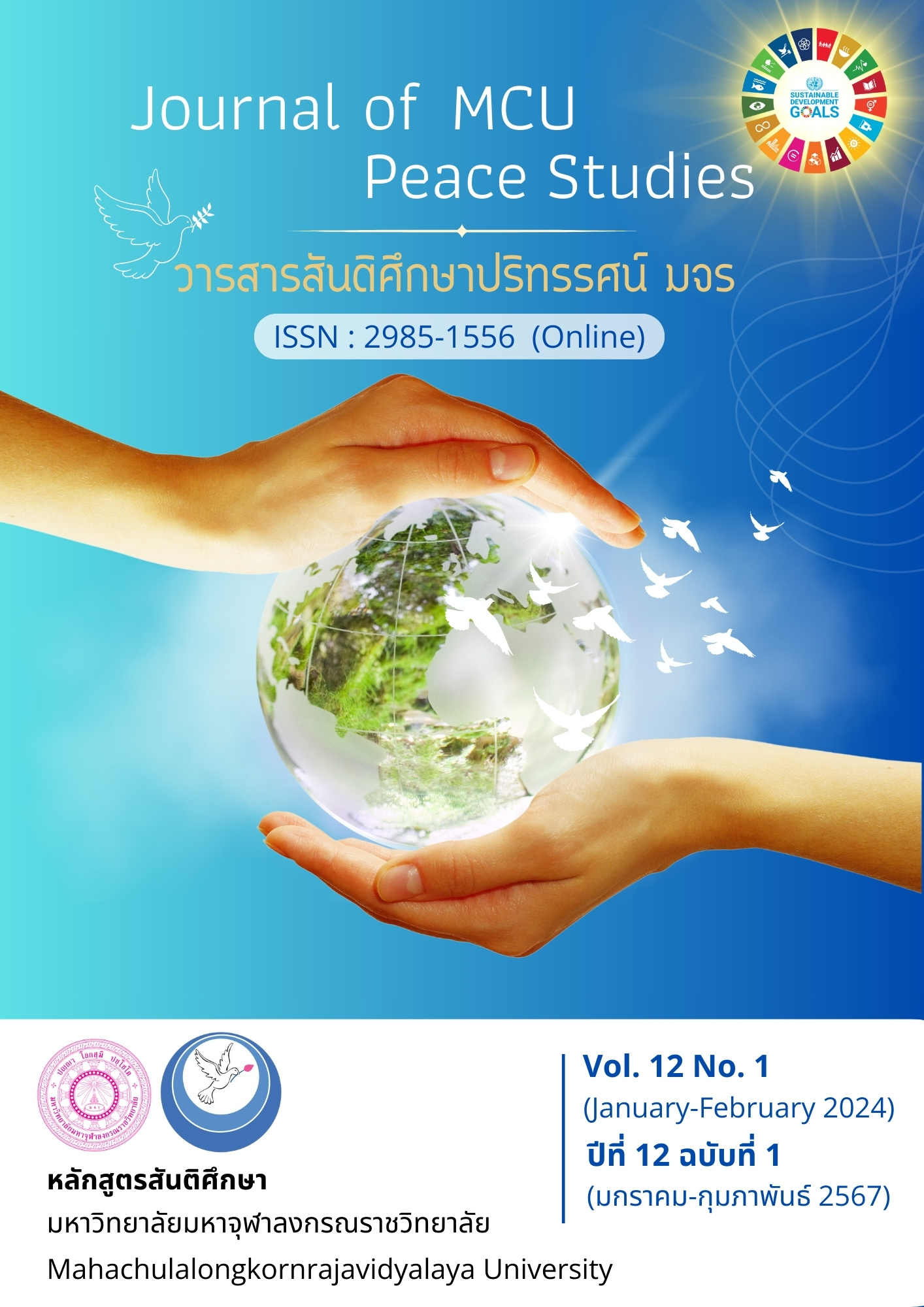Guideline for Grassroots Social and Economic Development by Using the Northeastern Way of Life to Integrate Public Participation in Cultural Tourism of Khong River in Central and Northern Areas
Main Article Content
บทคัดย่อ
The objectives of this research article aimed: 1) to find guidelines for grassroots social and economic development by using the northeastern way of life to integrate public participation in the cultural tourism of Khong River in central and northern areas, and 2) to design guidelines for grassroots social and economic development by using the northeastern way of life to integrate public participation in the cultural tourism of Khong River in central and northern areas. The qualitative data were collected from interviewing with a sample group of 90 persons via semi-structured interview. The key informants and focus groups included representatives of people, government, and private sectors.
The results of the study are as follows:
1) Guidelines for grassroots social and economic development by using the northeastern way of life to integrate public participation in the cultural tourism of Khong River in central and northern areas reveal that people have been significantly affected by development. For the tourism dimension, development must be a balance between the way of life and tourism development, which must include the ancestors of the villagers, tourism that brings prosperity to the local community through income and other investments, and other creative tourism activities.
2) The guidelines for grassroots social and economic development through the utilization of the northeastern way of life must integrate a total of 20 products of a community's local identity, which include social capital, culture and local resource capital. The participation of the people and government sectors can be done by integrating the concept of sustainable social and economic development, i.e. emphasizing joint thinking, planning, acting, following, judging and benefiting.
Article Details

อนุญาตภายใต้เงื่อนไข Creative Commons Attribution-NonCommercial-NoDerivatives 4.0 International License.
ทัศนะและความคิดเห็นที่ปรากฏในบทความในวารสาร ถือเป็นความรับผิดชอบของผู้เขียนบทความนั้น และไม่ถือเป็นทัศนะและความรับผิดชอบของกองบรรณาธิการ ยินยอมว่าบทความเป็นลิขสิทธิ์ของวารสาร
เอกสารอ้างอิง
Jirayukul, S., & Phothiwat, W. (2015). The Development of Learning Process in Good Management and Product Design of Dhonburi District Community Enterprise by Community Participation for Enhancing the Strength of Sustainable Community Economy Based on The Philosophy of Sufficiency Economy. (Research Report). Bangkok: Dhonburi Rajabhat University.
Kasemsuk, C. (2018). Public Participation Approach for Sustainable Community Development. Academic Journal of Humanities and Social Sciences, Burapha University, 26(50), 169-186.
Noivangklang, P. (2005). The Commodification of Culture in the Tourism Industry in Northeast Thailand. (Report Research). Bangkok: Ministry of Culture.
Singhalert, R., & Uthakorn, S. (2016). A Model of Community Economic Development for Self-sufficiency and Sustainable. (Research Report). Mahasarakham: Rajabhat Mahasarakham University.
Tungjaisathaphat, P. (2018). Article: Policy to Drive Tourists from the Main City to the Secondary City. Bangkok: The Government Public Relations Department.
Tungkittithavorn, N. (2007). Problems and Obstacles of Locality in the Development of Self-reliant Community Economy: Case Study, Bangrakum District, PhitSaanulok Province. (Master’s Thesis). Uttaradit Rajabhat University. Uttaradit.
Yamane, T. (1973). Statistics: An Introductory Analysis. (3rd ed.). New York: Harper and Row Publication.
Yam, N., Sirasiriraj, J., Duangchan, S., & Chaleysub, S. (2018). Strategies for Developing of Sustainable Creative Tourism for the Tourism along the Economic Route in the Upper Greater Mekong Sub-region. Vocational Education Innovation and Research Journal, 2(2), 103-115.


